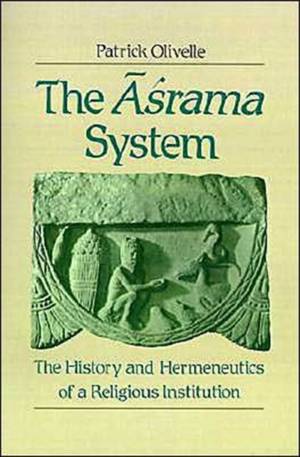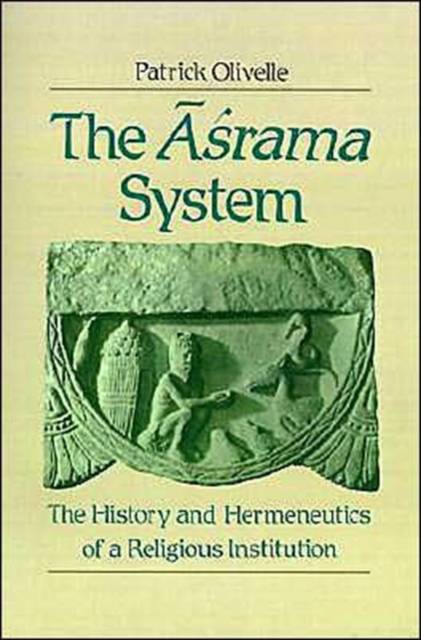
- Afhalen na 1 uur in een winkel met voorraad
- Gratis thuislevering in België vanaf € 30
- Ruim aanbod met 7 miljoen producten
- Afhalen na 1 uur in een winkel met voorraad
- Gratis thuislevering in België vanaf € 30
- Ruim aanbod met 7 miljoen producten
Zoeken
The Asrama System
The History and Hermeneutics of a Religious Institution
Patrick Olivelle
Hardcover | Engels
€ 398,95
+ 797 punten
Omschrijving
The lesser known and explored of the two pillars of Hinduism--āśrama and varṇa--āśrama is the name given to a system of four distinct and legitimate ways of leading a religious life: as a celibate student, a married householder, a forest hermit, and a world renouncer. In this, the first full-length study of the āśrama system, Olivelle uncovers its origin and traces its subsequent history. He examines in depth its relationship to other institutional and doctrinal aspects of the Brahmanical world and its position within Brahmanical theology, and assesses its significance within the history of Indian religion. Throughout, he argues that the āśrama system is primarily a theological construct and that the system and its history should be carefully distinguished from the socio-religious institutions comprehended by the system and from their respective histories.
Specificaties
Betrokkenen
- Auteur(s):
- Uitgeverij:
Inhoud
- Aantal bladzijden:
- 288
- Taal:
- Engels
Eigenschappen
- Productcode (EAN):
- 9780195083279
- Verschijningsdatum:
- 14/10/1993
- Uitvoering:
- Hardcover
- Formaat:
- Genaaid
- Afmetingen:
- 162 mm x 237 mm
- Gewicht:
- 607 g

Alleen bij Standaard Boekhandel
+ 797 punten op je klantenkaart van Standaard Boekhandel
Beoordelingen
We publiceren alleen reviews die voldoen aan de voorwaarden voor reviews. Bekijk onze voorwaarden voor reviews.











